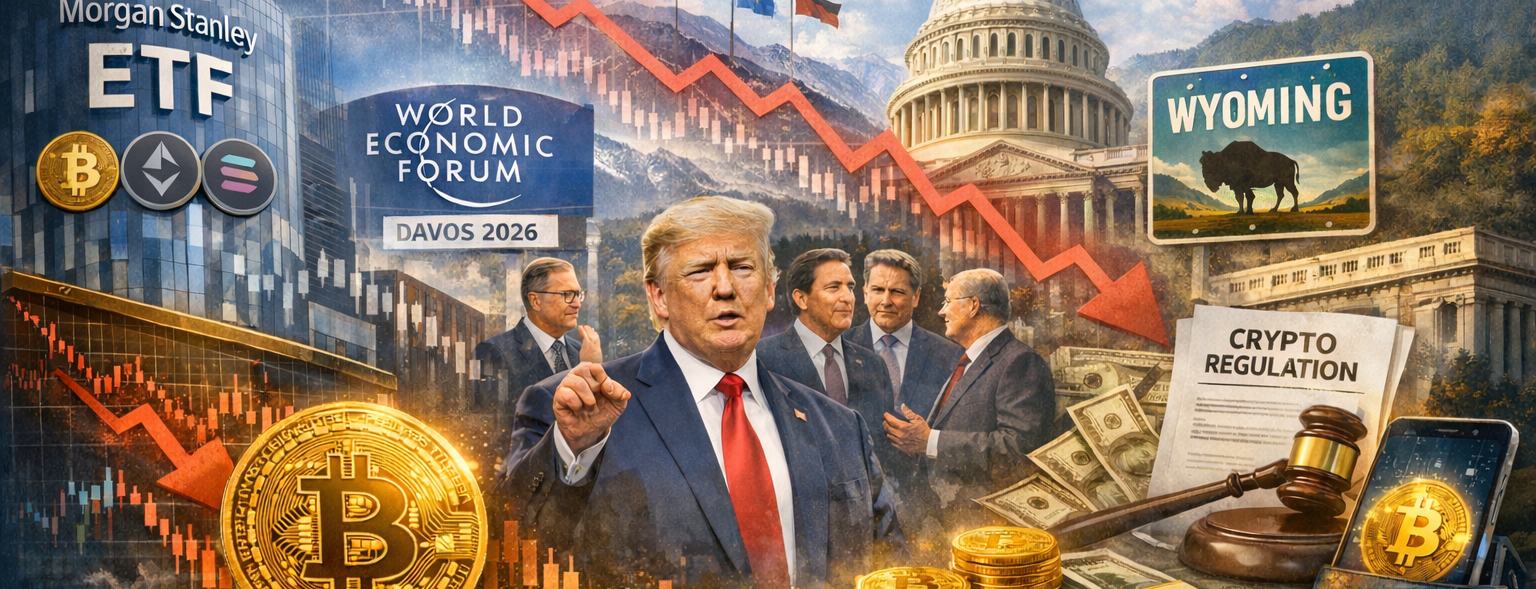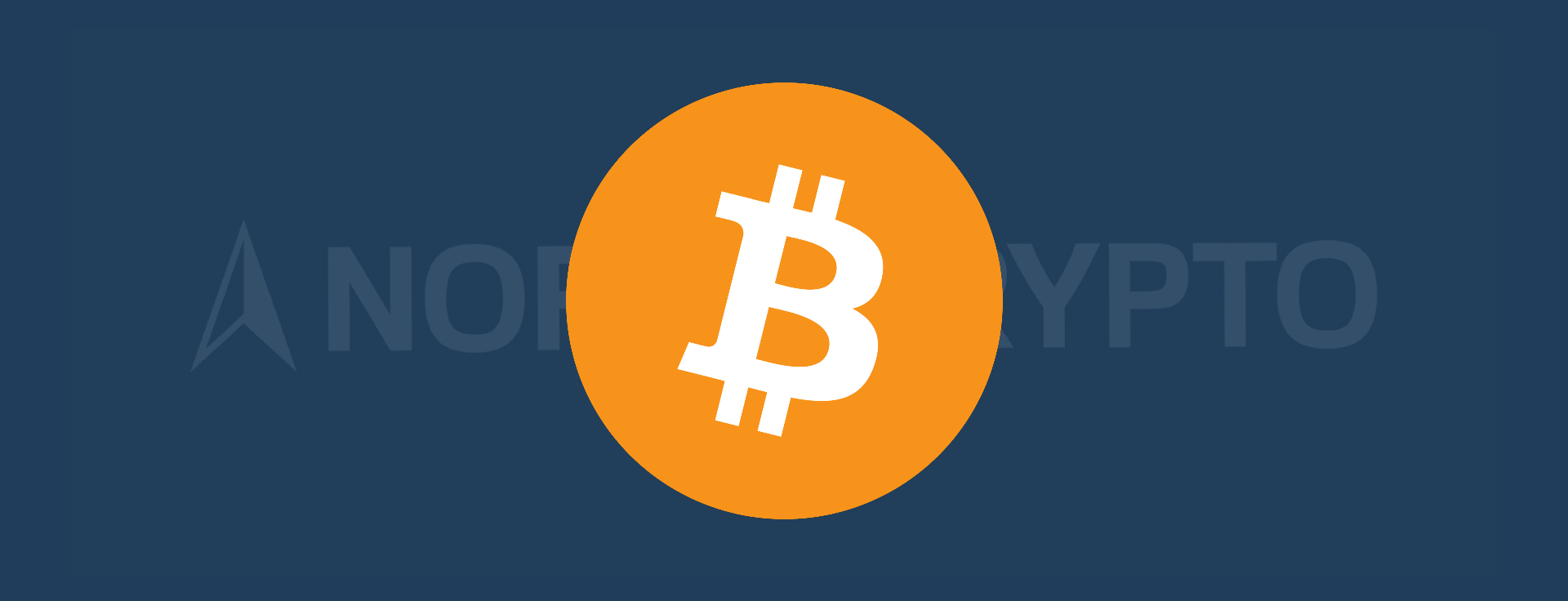
2023 was a very positive year for cryptocurrencies, both in terms of price movements and cryptocurrency news. This report looks at the price movements and major events in cryptocurrencies in 2023.
First quarter
The year 2023 started in a rather uncertain situation for cryptocurrency prices. Both Bitcoin and Ethereum prices had fallen at the end of 2022, and 2023 started with Bitcoin at around €15,400 and Ethereum at just over €1,100. The year 2023 started positively for cryptocurrency price movements, with the price of Bitcoin rising by around 70% in the first quarter to end the period at over €26,000. The price of Ethereum also rose by just over 50% to just under €1,700 at the end of the first quarter. Although the first quarter was an excellent time for cryptocurrency price developments, it was a relatively quiet quarter for major cryptocurrency news.
Genesis Global Capital, a major provider of cryptocurrency lending services to institutional investors, announced in January that it was filing for bankruptcy. Genesis' bankruptcy filing listed more than 100,000 creditors and debts of €1-10 billion. Genesis announced in November 2022, following the collapse of the cryptocurrency exchange FTX, that it would suspend new lending and customer withdrawals. After November 2022, news about Genesis' situation was reported practically every week and therefore the bankruptcy was already priced into cryptocurrency prices, so to speak, as the bankruptcy announcement itself had little impact on cryptocurrency prices.
In the traditional banking world, significant events took place in March, with US banks Silicon Valley Bank, Silvergate Bank, and Signature Bank, as well as Credit Suisse, one of Europe's largest banks, in big trouble. However, the escalation of the situation into a wider banking crisis was prevented by measures taken by the central banks of several countries. Many, especially Bitcoin advocates, saw the banking problems as a positive for Bitcoin, as they help people understand the benefits of a decentralized monetary system like Bitcoin. Indeed, the banking problems were likely to have a positive impact on the price performance of Bitcoin, as Bitcoin stood out positively from the rest of the cryptocurrency market and other asset classes following the news of the banking problems.
Second Quarter
The second quarter was a quieter time for cryptocurrency market price movements, with cryptocurrency prices moving mostly sideways during the quarter. By the end of the quarter, Bitcoin had risen to around €28,000 and Ethereum to around €1,770. Most other cryptocurrencies, on the other hand, were on the decline during the second quarter. Compared to the first quarter, the second quarter was very different in terms of cryptocurrency price movements and cryptocurrency news. Indeed, the period was relatively quiet in terms of cryptocurrency price movements, but there were several significant cryptocurrency news events.
The second quarter started on a positive note for cryptocurrency news with the successful implementation of the Ethereum Shapella update package in early April. With this update, Ethereum finally switched to the Proof of Stake algorithm. The update made it possible to withdraw ether tokens that had been staked into the Ethereum network for maintenance work. Some anticipate that the ability to withdraw ethers will increase the number of ether tokens available for trading, thus negatively impacting the price of ether. However, Ethereum was one of the best-performing cryptocurrencies in April, so these predictions were not borne out.
April saw a major step forward for both the European Union and international cryptocurrency regulation when the Markets in Crypto-Assets (MiCA) cryptocurrency legislation was voted through in the EU with a clear majority. MiCA is due to enter into force in phases during the second half of 2024 and early 2025. For example, the MiCA will provide regulatory certainty for cryptocurrencies, which have been at a lower level before the MiCA. This will facilitate the entry of institutional players in particular into the cryptocurrency market. The MiCA also aims to create a common set of rules for all crypto operators in the EU to make the competitive environment fairer and safer.
In June, the US Securities and Exchange Commission (SEC) filed a complaint against Binance, the world's largest cryptocurrency exchange by trading volume. The SEC accused Binance of, among other things, misusing customer funds, misleading investors and regulators, and violating securities regulations. According to Binance, the allegations were unfounded. Shortly after Binance's lawsuit, the SEC also filed a lawsuit against the cryptocurrency exchange Coinbase. Coinbase was accused of violating securities regulations because, according to the SEC, Coinbase operates as an unregistered exchange and broker. Coinbase also expressed its opposition to the lawsuit, stating that it relied on the facts and the law.
Probably the most significant cryptocurrency news of the second quarter came in June, when BlackRock, the world's largest asset manager with around €8 trillion in assets under management, filed a Bitcoin spot ETF application with the SEC. As a spot ETF, this would mean that ETF holdings are always backed by bitcoins and not, for example, just Bitcoin futures. The news was significant as BlackRock is one of the largest and most followed financial players in the world, with clients including government agencies, pension funds, foundations, and other major financial players. The impact of BlackRock's filing was already visible in June, when several US asset managers filed for Bitcoin spot ETFs, following in the footsteps of the world's largest asset manager. The most notable of these was Fidelity, the world's third-largest asset manager.
Third Quarter
The third quarter was a weaker period for cryptocurrency prices than the previous two quarters, with Bitcoin and Ethereum, for example, both falling by just under 10% during the quarter. However, among the cryptocurrencies offered by Northcrypto, the best-performing cryptocurrency of the quarter was Chainlink, which saw its price rise by almost 40% during the quarter.
At the beginning of the third quarter, a positive legal decision for the regulation of the cryptocurrency market emerged from the US. In July, the United States District Court for the Southern District of New York ruled that the cryptocurrency XRP is not a security. The legal battle between the SEC and Ripple Labs, the company behind XRP, which has been ongoing since 2020, received an overall positive outcome for the cryptocurrency world. While many had feared for some time that some cryptocurrencies would be classified as securities in the US, the XRP court ruling can be seen to have significantly reduced the likelihood of this risk materializing.
The third quarter also saw positive news from banks in Europe and the US regarding progress on cryptocurrencies. Deutsche Bank, one of Europe's largest banks, announced in September that it is working to offer cryptocurrency custody and tokenization services. To do this, Deutsche Bank is working in partnership with Swiss-based Taurus, which specializes in particular in cryptocurrency custody. In the US, Citibank, one of the country's largest banks, launched a new blockchain-based solution, Citi Token Services. This solution is designed to provide institutional clients with cross-border payments, liquidity, and automated trade financing solutions, among other things. Citibank's solution also uses smart contracts to provide an alternative solution to, for example, bank guarantees.
Fourth Quarter
The fourth quarter was an excellent time for cryptocurrency prices, with Bitcoin and Ethereum prices, for example, rising in every month of the quarter. The price of Bitcoin shot up by around 50% during the quarter, while the price of Ethereum rose by around 30%. The rise can be seen to have been driven in particular by the increased likelihood of a Bitcoin spot ETF being approved in the US.
BlackRock and Fidelity, two of the world's largest asset managers, both filed Ethereum spot ETF applications with the SEC in November. Fidelity can be seen to have followed in BlackRock's footsteps, as BlackRock filed its own Ethereum spot ETF application only a short time before Fidelity. In addition to BlackRock and Fidelity, five other Ethereum spot ETF applications had been filed by the end of the year. The Ethereum spot ETF applications that have been submitted reflect the perceived demand from the world's largest asset managers not only for Bitcoin but also for the second-largest cryptocurrency in the market.
In November, the US Department of Justice reached a settlement with Binance, the world's largest cryptocurrency exchange by trading volume. Binance was found to have violated money transfer laws and US sanctions, among other things, and was ordered to pay a fine of almost €4 billion. The fine imposed on Binance is one of the largest fines imposed on a company in US history. At the same time Binance's founder and CEO Changpeng Zhao (CZ), one of the most prominent figures in the cryptocurrency world, stepped down from his role as CEO of Binance.
In December, the Financial Accounting Standards Board (FASB), which creates and develops US accounting standards, issued new standards for accounting for cryptocurrencies. Prior to the new standard, US companies must record cryptocurrency holdings as a loss if the value of the cryptocurrency holdings is less than the purchase price, even if the company has not sold its cryptocurrencies. At the same time, however, a company could not recognize cryptocurrency holdings as a gain if their value was more than the purchase price. With the standards coming into force in December 2024, cryptocurrencies will be accounted for based on their fair value. Fair value refers to the value of the investments at the accounting date. Under fair value accounting, companies can report both unrealized gains and losses on a quarterly basis. This allows companies to derive accounting benefits from the appreciation of cryptocurrency investments without having to sell cryptocurrency holdings.
MicroStrategy, a US company providing business intelligence solutions, cloud-based services, and mobile software, bought more bitcoin several times during 2023. MicroStrategy originally started buying bitcoin in August 2020, when the price of bitcoin was around €10,000. With the purchases in 2023, MicroStrategy's bitcoin holdings increased from 132,500 bitcoins to 189,150 bitcoins. The average price of the company's bitcoin purchases after the 2023 purchases was approximately €28,250. The value of MicroStrategy's bitcoin holdings had therefore risen by around 35% by the end of the year, representing an increase in value of around €2.1 billion.
Summary
After a down year in 2022, 2023 was a very positive year for cryptocurrency prices. The price of Bitcoin rose by as much as 150% during the year, while the price of Ethereum increased by around 85%. Of the other cryptocurrencies offered by Northcrypto, Chainlink was the best performer, rising just over 160% over the year. At those figures, these cryptocurrencies are in a league of their own compared to many stocks, for example, as the Helsinki Stock Exchange (OMXH) was down more than 5% in 2023.
In addition to price movements, 2023 was also a positive year for cryptocurrency news. The Bitcoin and Ethereum spot ETF filings in the US by the world's largest asset managers and the new cryptocurrency accounting standards issued by the FASB are positive developments, especially for institutional participants in the cryptocurrency market. In terms of the legal status of cryptocurrencies, the EU's MiCA cryptocurrency legislation and the US decision that the cryptocurrency XRP is not a security were further steps forward.
The year 2024 looks promising for cryptocurrencies, with Bitcoin spot ETFs likely to be approved early this year and Bitcoin halving in April, among other things. These and other developments in 2024 are discussed in more detail in the blog post Year 2024 in the Cryptocurrency Markets, published at the end of 2023.
Ville Viitaharju
Cryptocurrency specialist
Last updated: 05.01.2024 15:30




